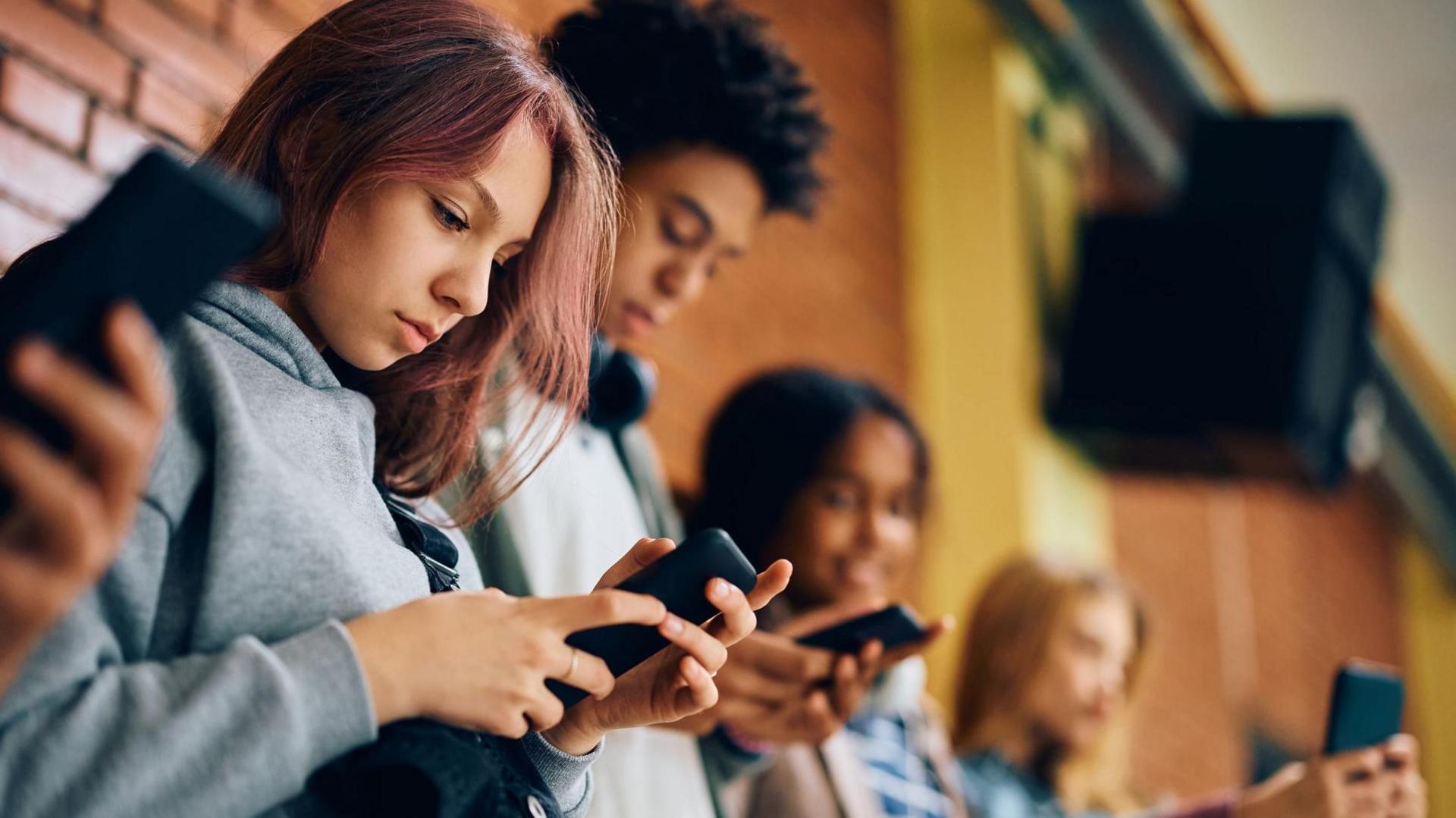Smart phone restriction 'very beneficial' in classrooms
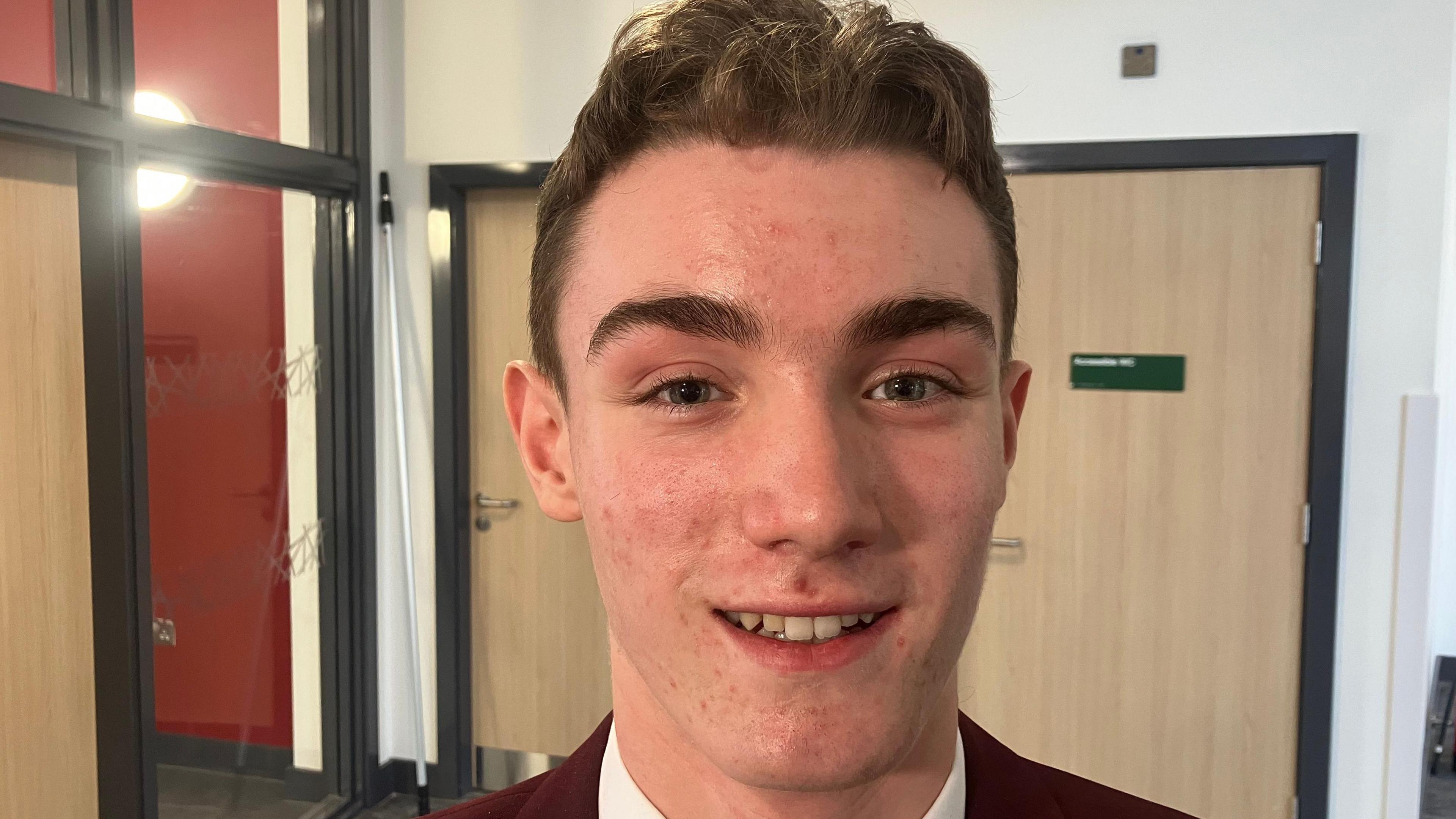
Dylan says that without his phone in school he is a lot more focused
- Published
A pilot scheme aimed at restricting pupils from using their mobile phones during school hours has been hailed as "very beneficial" among those participating in the scheme.
St Ronan's College in Lurgan is one of nine schools to be provided with magnetic pouches as part of the pilot started by the Department of Education.
Dylan, a pupil at St Ronan's, said the scheme has led him and his friends "to focus a lot more in school".
The pilot which will aim to explore the benefits of a phone-free school day, began in September and will run until March 2026.
Speaking to BBC News NI, Dylan said the scheme was a "bit strange at first but we've got used to it now".
He said: "When our form teachers explained it to us on the first day, from then on it was easy.
"At first I was a bit annoyed about it, but then I started to find it very beneficial to cut out distractions and for me to focus a lot more in school."
Dylan said the scheme has had mixed reactions from pupils "some people do like it, and some don't, but most people think it's very beneficial", he said.
As for his parents, Dylan says "they love it, they think it's great".
'We're more sociable now our phones are locked away during school'
'Bring two phones in'
Lucy said that over the summer friends were concocting creative ideas to escape the reality of having no phone.
"When speaking to friends there was a bit of resistance, like 'I'm not doing that' or 'I'm going to bring two phones in', all these ideas coming up but I think it's a lot of hassle not to take part," she told BBC News NI.
"You're not on your phone, or at least you shouldn't anyway, I don't think it really matters being in the pouch," she said.
Outside of the classroom Lucy has noticed people are engaging more.
"At lunchtime everybody is being more sociable, playing with the balls, we watched a match the other day, nobody's sitting on their phone."
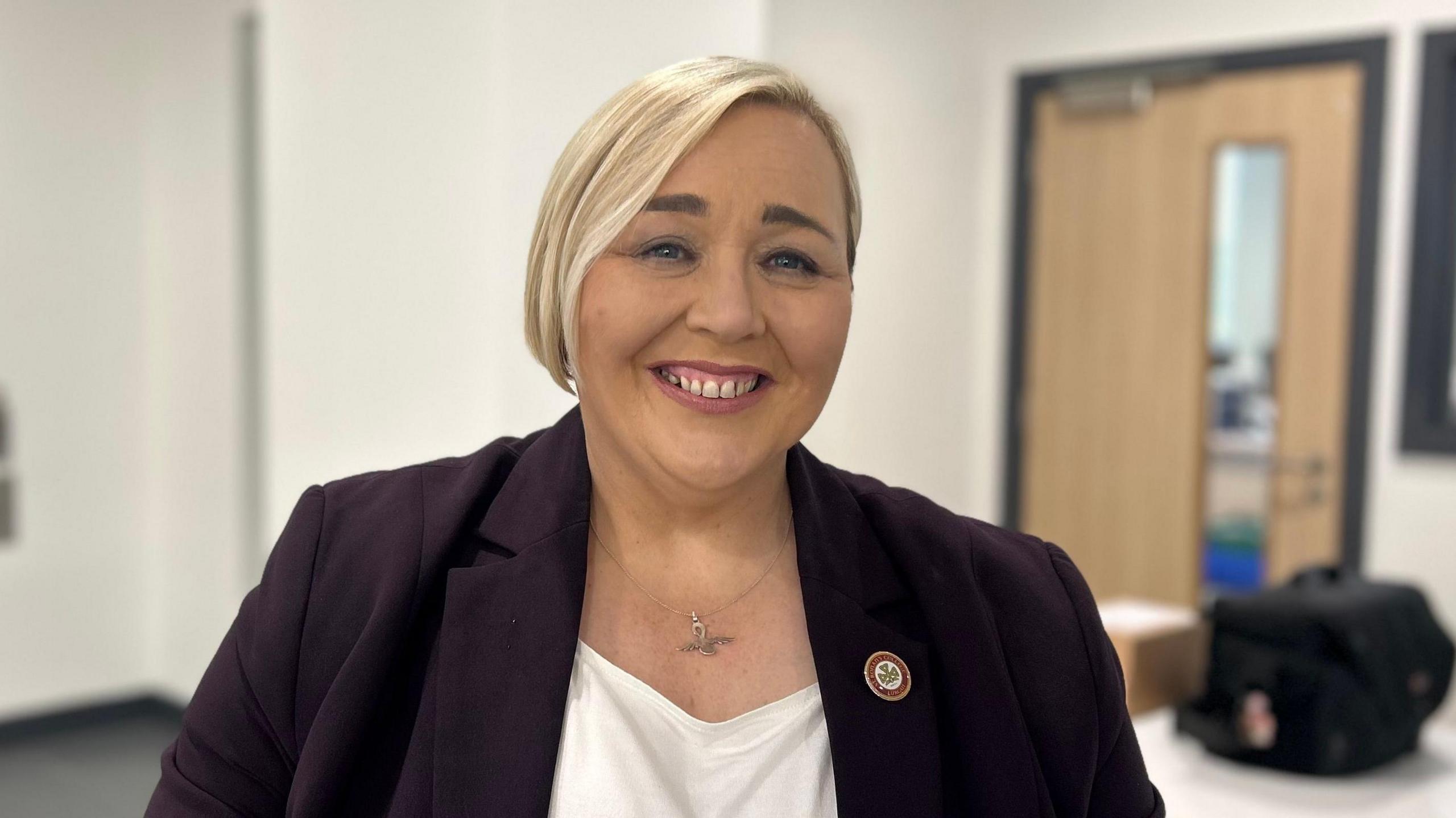
Principal Fiona Kane said she has already seen progress from the pilot
Fiona Kane, principal at St Ronan's College, said the scheme has "transformed learning and teaching".
Speaking to Good Morning Ulster, Ms Kane said she has witnessed real change so far.
"Phones are a massive distraction during the day and there would have been incidents were pupils would have a sneaky look during lessons."
Now, she says "teachers are telling me that pupils are more alert in class, more engaged and I've seen it myself".
"I cannot wait to see the impact of all of this on oracy levels, better socialization and confidence."
It does not stop with the pupils as Ms Kane claims "we've also had our our staff model that behaviour, so everybody is trying to put their phones away".
'Minor breaches'
"There have been a couple of minor breaches, maybe three out of 1,800 since the start of September."
She added: "The culture is already established, it's going really well and I can't wait to see what the studies comes back with."
An educational and academic evaluation will also take place in London between the Department of Education and Kings College, according to Ms Kane who said it "will look at the impact of the removal of mobile devices on three key areas, learning, behaviour and well-being".
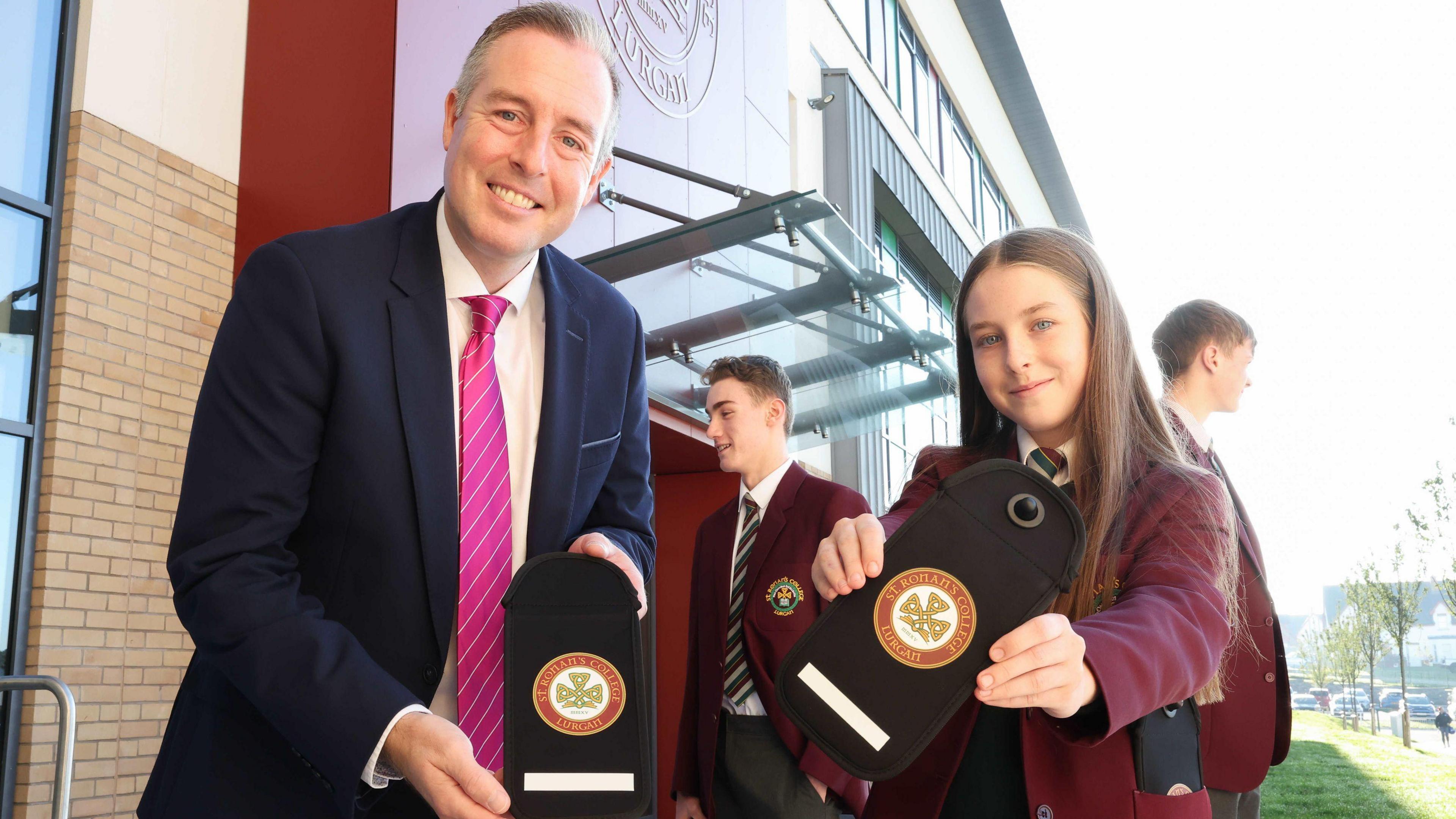
The education minster visited St Ronan's College on Thursday
The education minister said the pupils told him, the scheme has been "transformational".
Givan said pupils are "engaging in conversation, they're telling me they are more engaged in lessons, they're concentrating, and this is reducing the amount of screen time they are spending on their devices".
The scheme itself will be monitored by an external body, according to Givan, which will "be able to verify if what I'm hearing is actually the case, but I'm confident it will be".
"Teachers have actually said that this is the single most transformational change that they have had in their profession because they have pupils that are fully engaged in the lessons they are delivering.
"This process has removed the need for a disciplinary approach because it has been universally embraced," he said.
Of the nine schools involved St Ronan's is the largest with 1800 pupils.
Pupils put their phones in a locked pouch at the start of school day so they can not access it in school hours.
There are some exceptions.
A small number of individuals have medical needs, like diabetes, which requires quick access to their phone.
Magnetic pouches work by locking the phone inside a fabric pocket which only a teacher would be able to unlock.
Earlier in the year 900 mobile cases were piloted by Victoria College Belfast for its pupils.
The nine schools participating in the pilot are:
Glenlola Collegiate, Bangor
Friends' School, Lisburn
Hazelwood Integrated College, Belfast
St Genevieve's High School, Belfast
St Joseph's Boys', Londonderry
St Fanchea's College, Enniskillen
Larne High School
Markethill High School
St Ronan's College, Lurgan
Related topics
- Published10 January
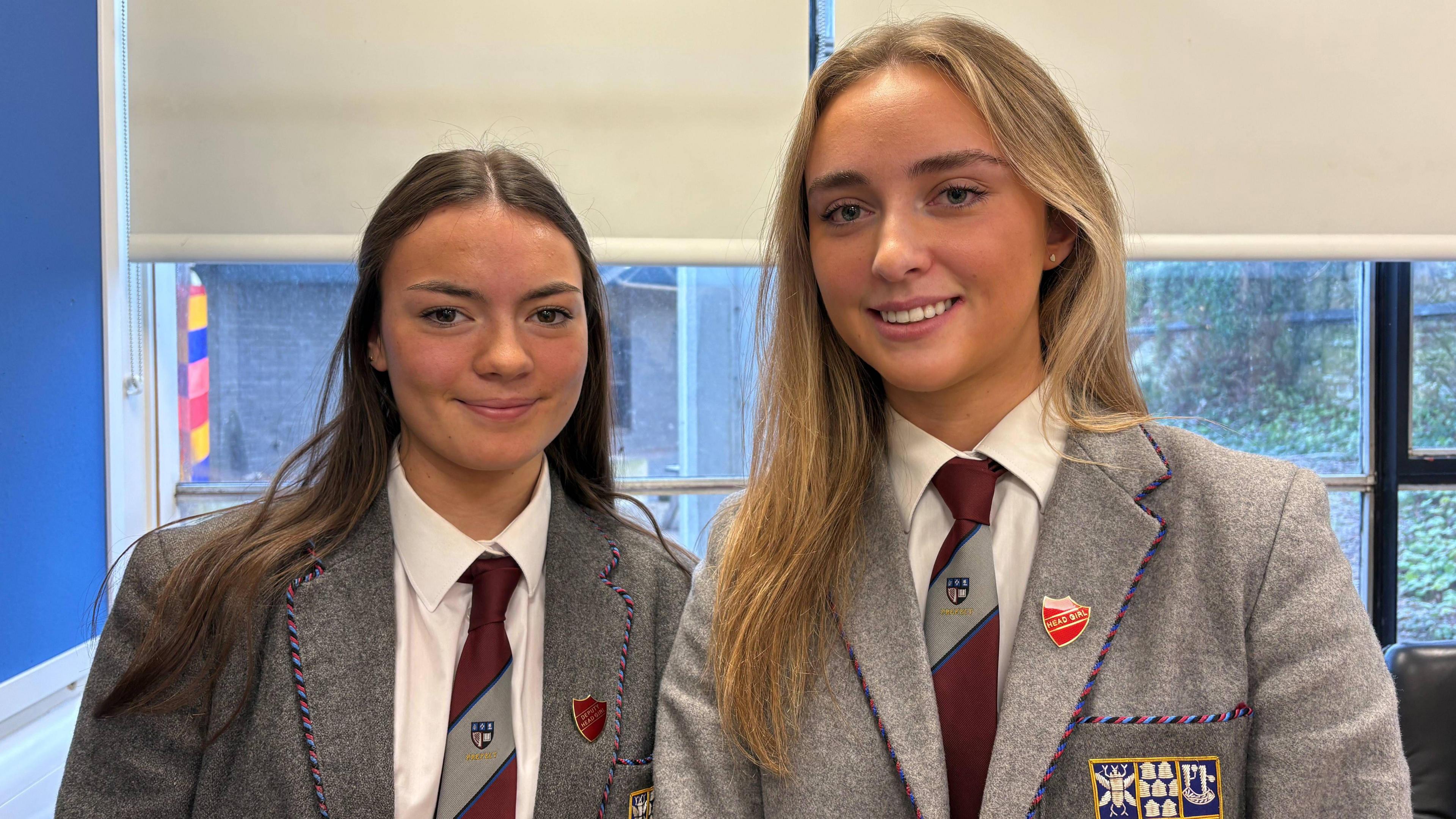
- Published6 September 2024
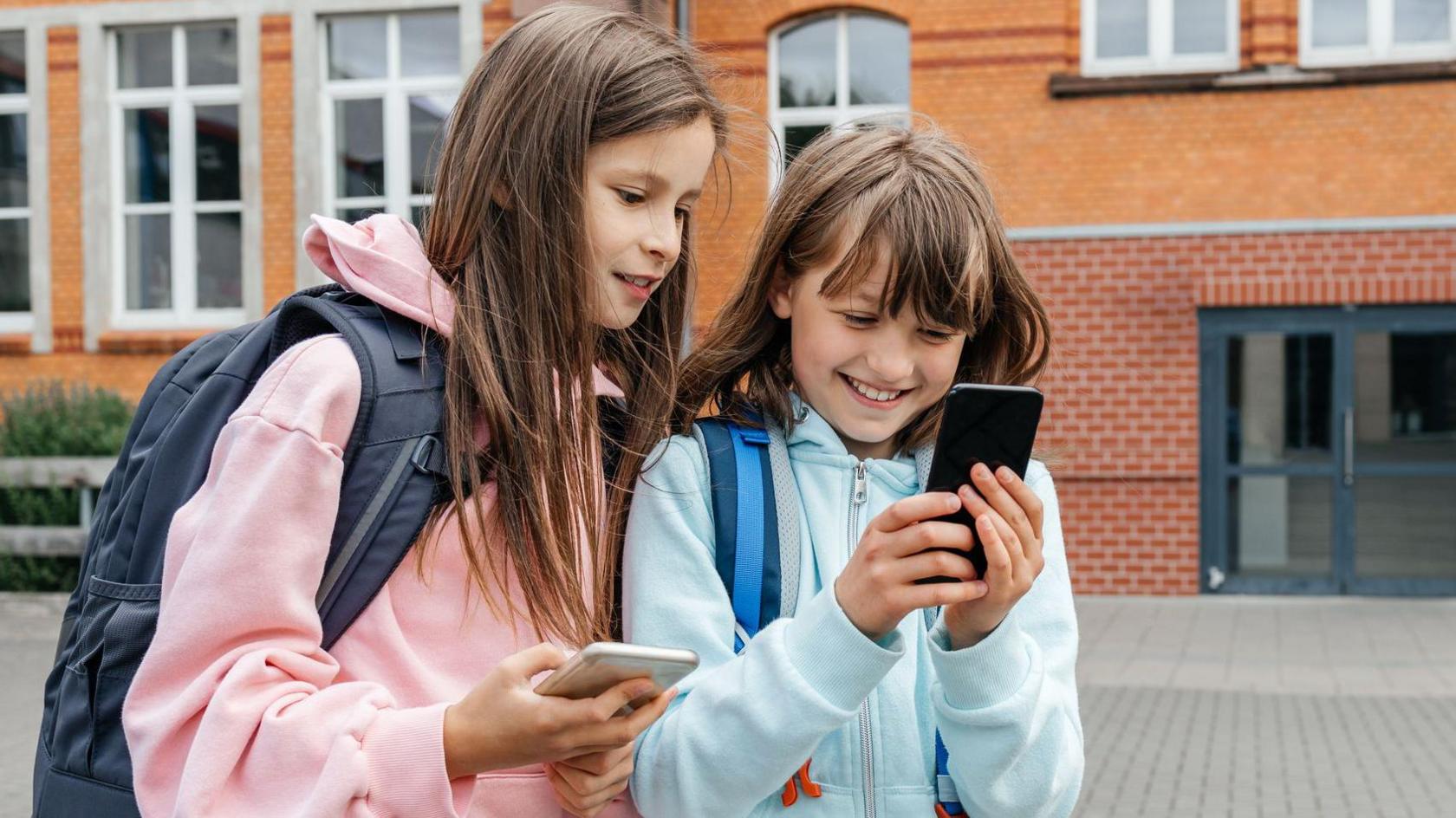
- Published5 February
